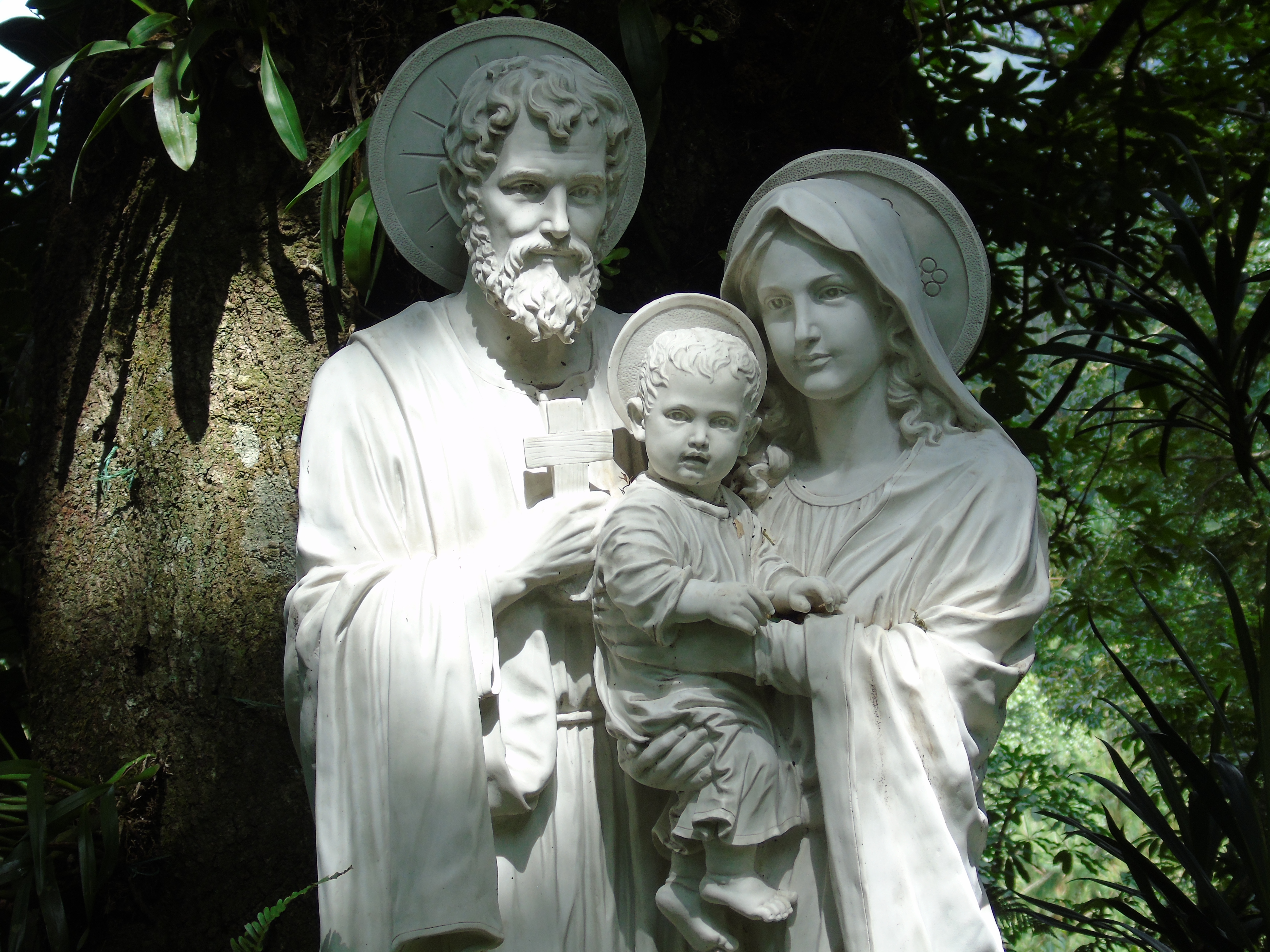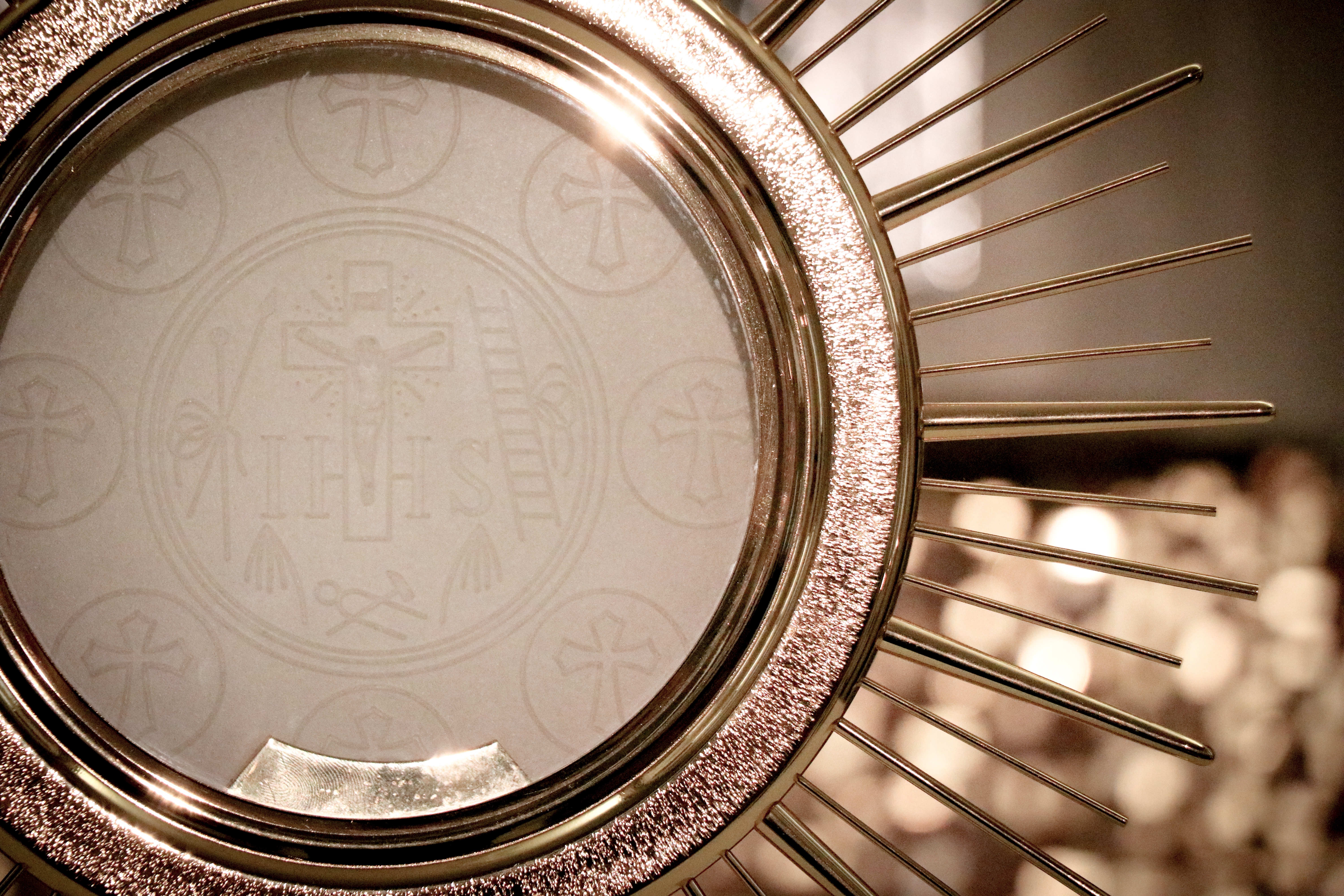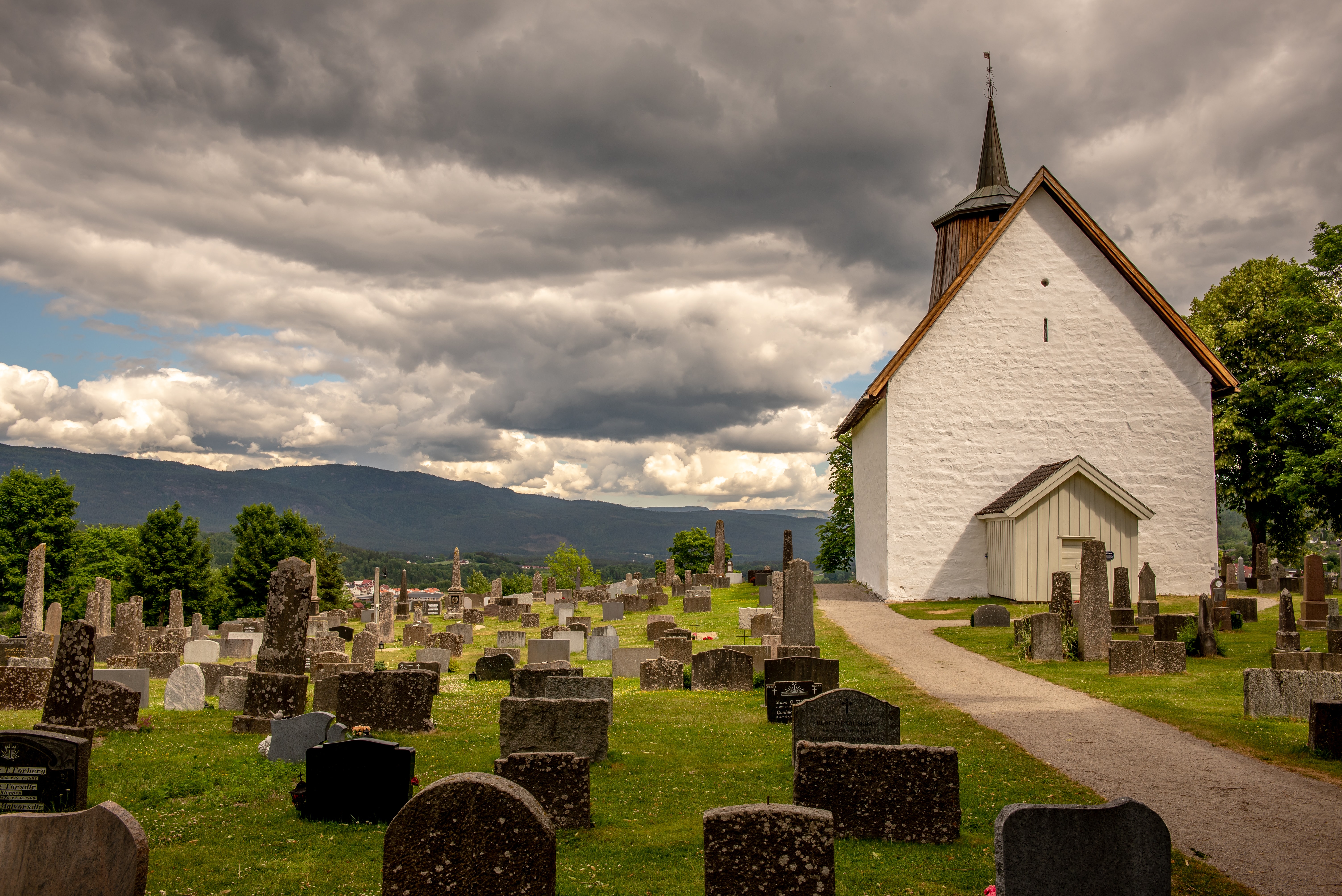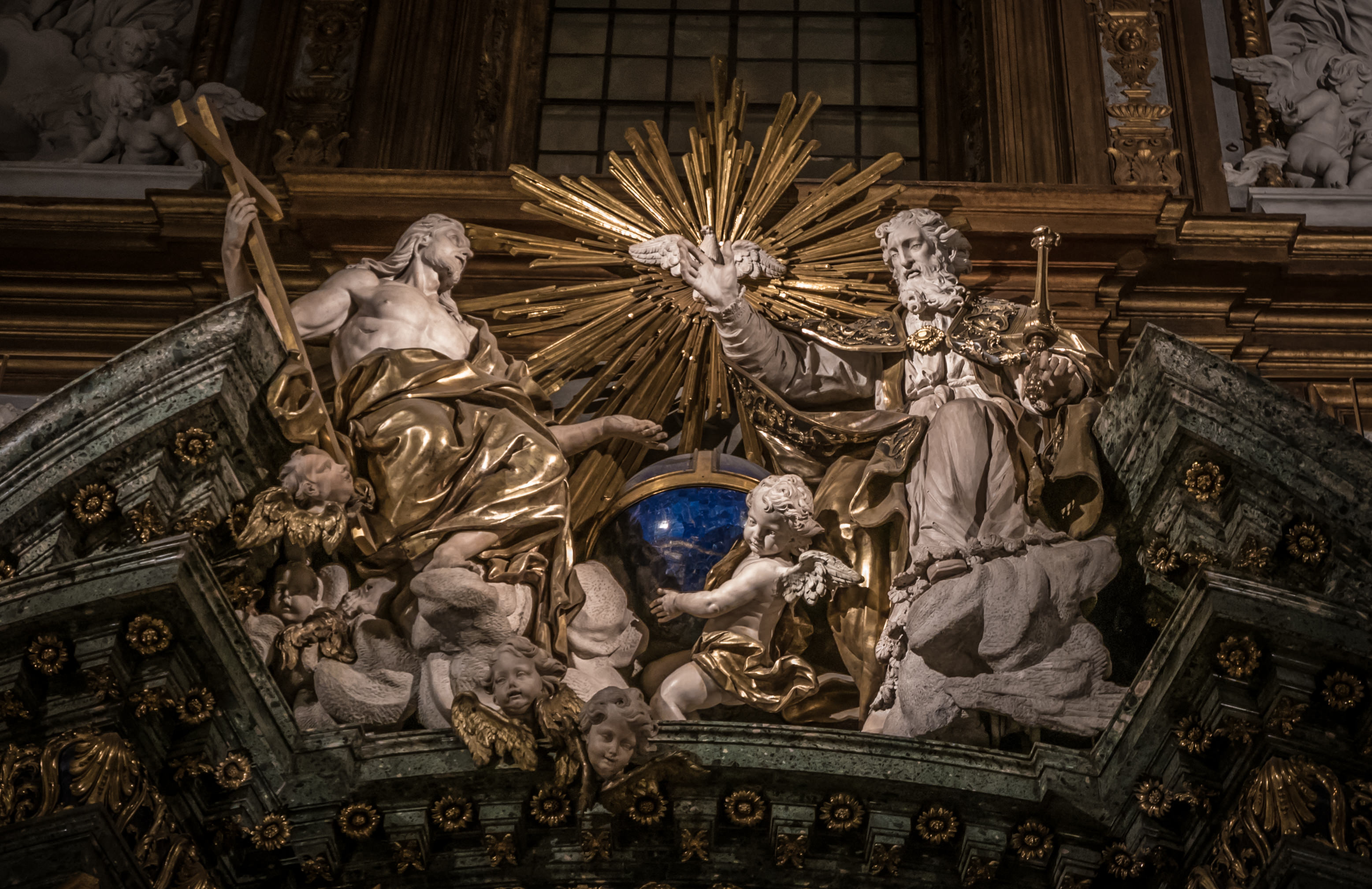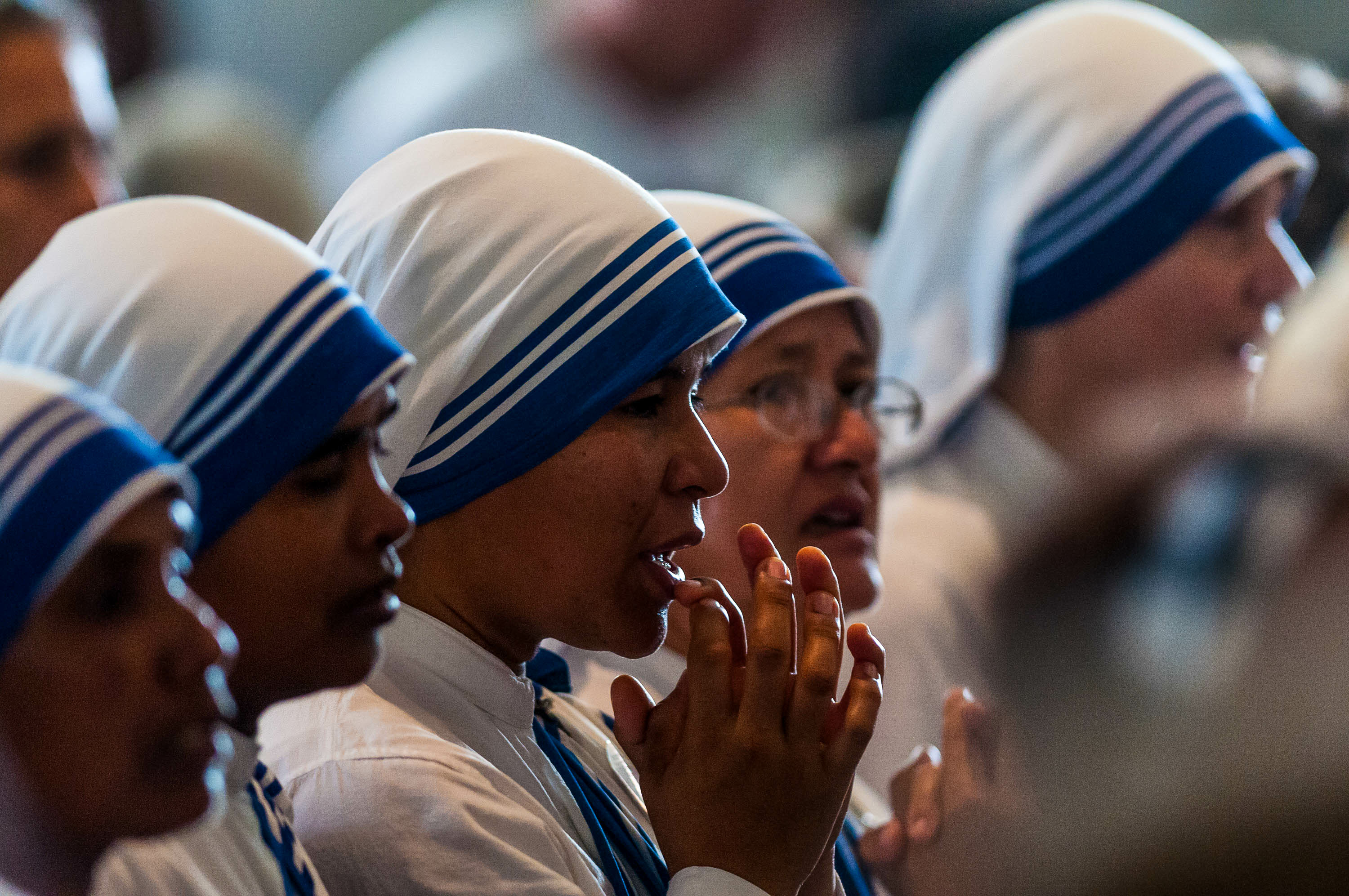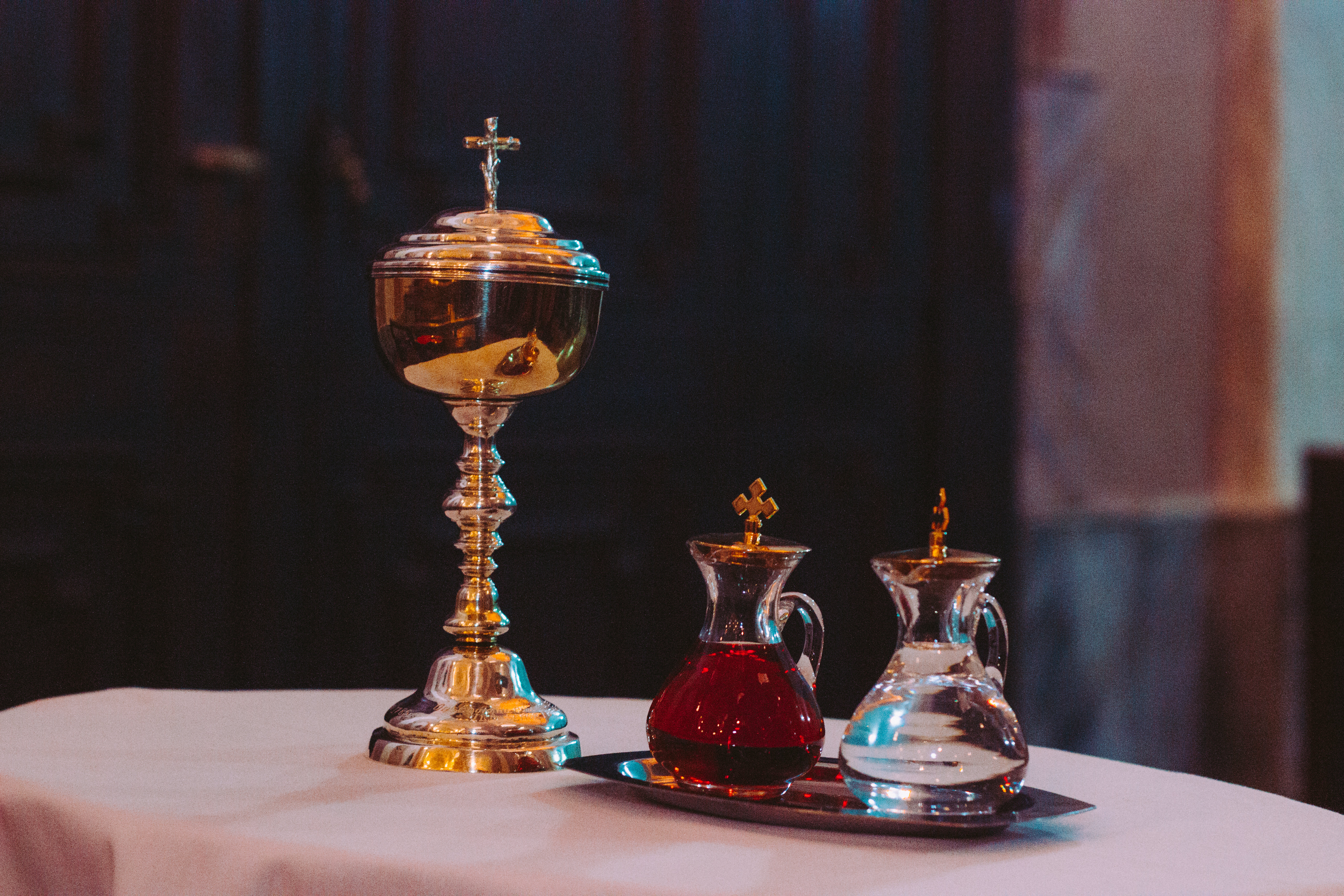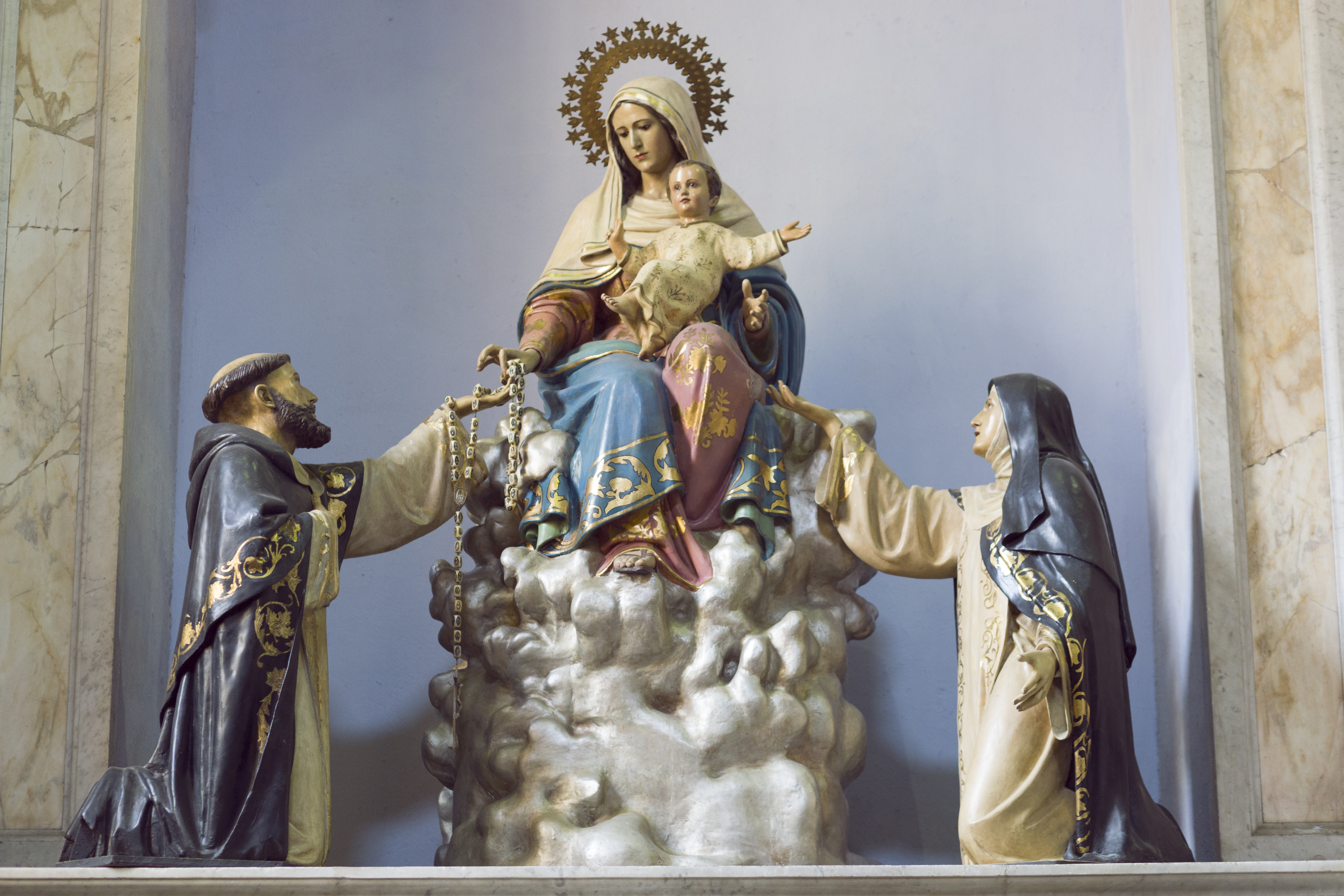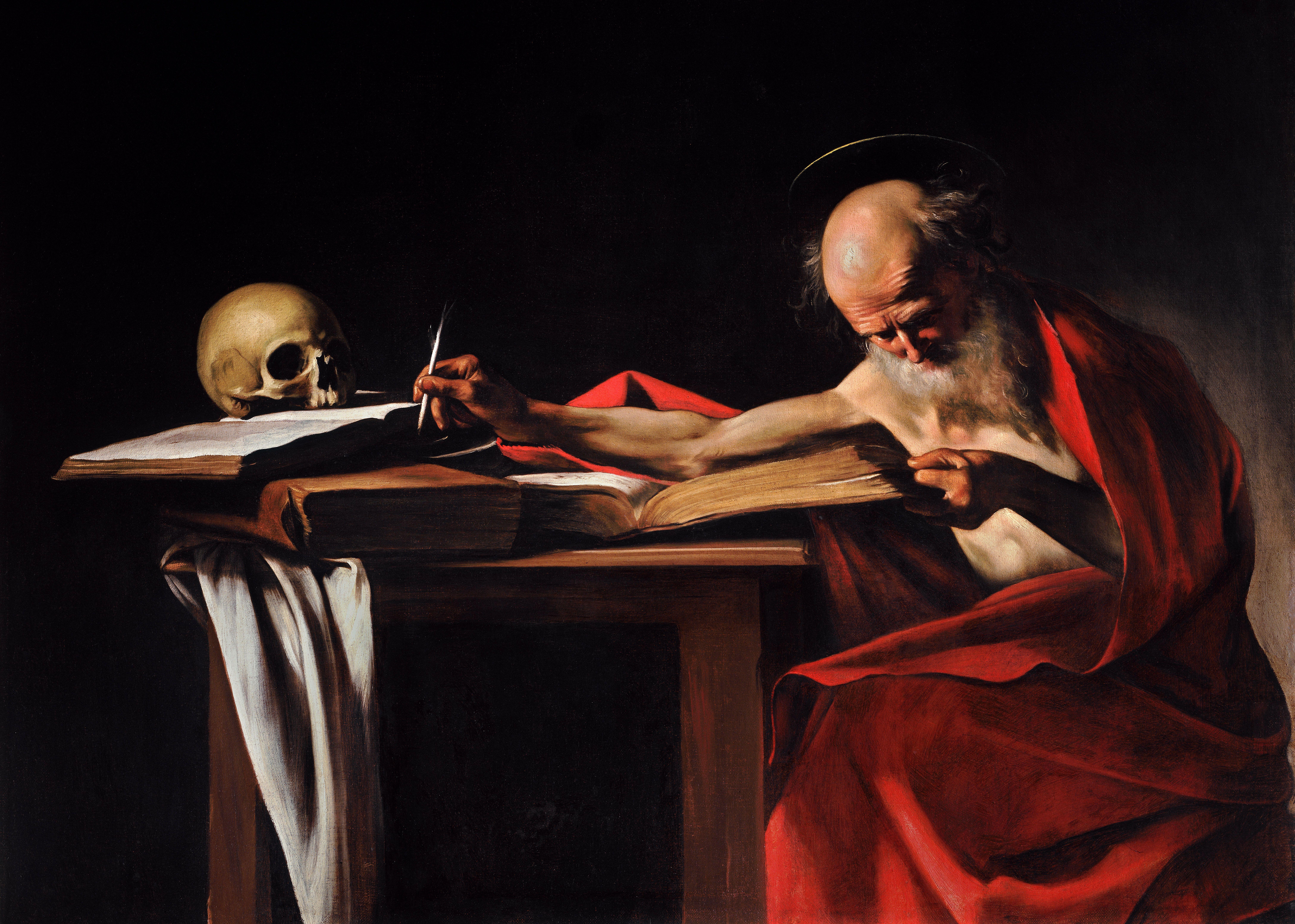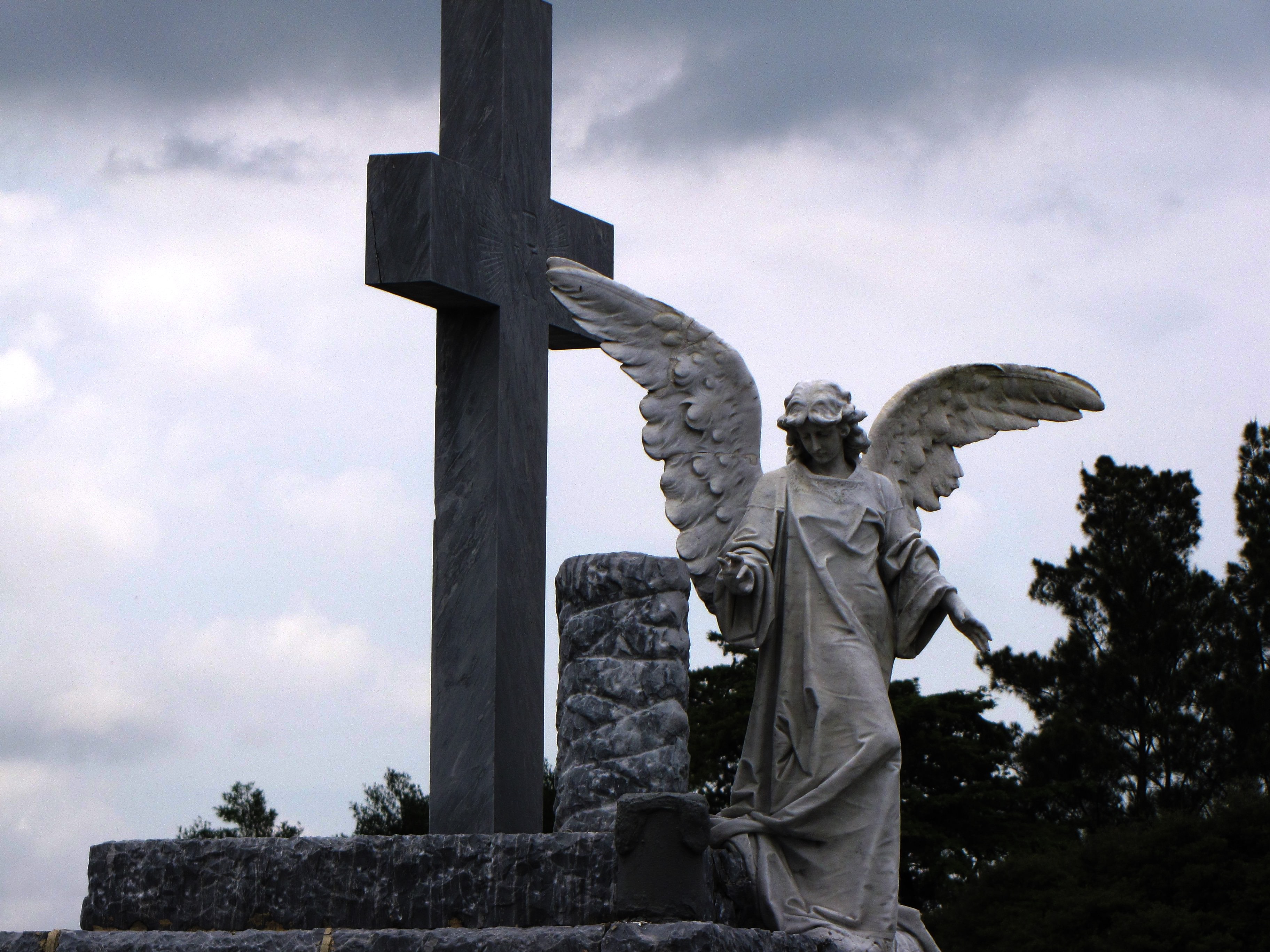Our readings begin with a clear reminder of God’s all-encompassing providence: “Because of me you bear fruit!” (Hos. 14:9). We hear this theme echoed throughout Scripture, especially in Jesus: “Without me, you can do nothing” (John 15:5).
Like the Israelites in the First Reading, we may think that the works of our hands, our ingenuity, or other nations will be our salvation, providing for us all that we need and giving us the strength to be morally upright and happy. Consider our dependence on technology, news, and scientific knowledge to give our lives meaning. We may not realize it at each moment, but we have a difficult time acknowledging God’s sovereignty and providence in practice.
God’s providence is not something distant. It is necessary for us to exist in the first place — without God allowing us to share in His existence we would not be here. Crippled as we are by Original Sin, we also need God’s providence to be forgiven and even to bear fruit in the first place. This is what our first two readings remind us of.
Once we have acknowledged our guilt and our trust in finite things instead of in the infinite God, there is still much work to be done for the kingdom. This is where we find ourselves in the Gospel. The Holy Spirit takes care of His people and enables them to witness, but we need to trust in Him. Again we run into the temptation to think that if our needs appear satisfied by the things of this world, we do not need God.
Ultimately, as Cardinal Robert Sarah is fond of saying, the choice is between God or nothing. The Lord made the heavens and the earth and all that is in them, and He keeps them running harmoniously, actively providing for the things He has created. We can acknowledge that or not, but He is working regardless. As Hosea says, “Straight are the paths of the Lord, in them the just walk, but sinners stumble in them” (Hos 14:10). We are all governed by God’s providence, but we reap the benefits of His care to the degree that we follow His way. If we ignore Him, we stumble.
Since He provides us with the grace we utterly depend upon, God deserves our constant praise. As Jesus and the Psalmist imply, this praise ought to extend to everything that comes our way, not just what comes in good times. God directs all things in the universe. We cannot forget that although He does not create or will evil, He permits it as a consequence of the free will He gives us. On the Cross, He showed us that He desires to bring good out of every evil, no matter the agony in the moment.
We have a powerful reminder today that without God, we cannot even begin to be good, fruitful, or happy, let alone exist in the first place. He provides us with more than we need. Let us praise Him for His wonderful providence, and trust that whatever comes our way, the Lord intends it to work for our good.
Las lecturas de hoy comienzan con un claro recordatorio de la providencia abundante de Dios: “¡Gracias a mí lleváis fruto!” (Oseas 14:9). Escuchamos este tema repetido a lo largo de las Escrituras, especialmente en referencia a Jesús: “Separados de mí, nada podéis hacer” (Juan 15:5).
Como los israelitas en la Primera Lectura, podemos pensar que las obras de nuestras manos, nuestro ingenio o las de otras naciones serán nuestra salvación, proveyéndonos todo lo que necesitamos y dándonos la fuerza para ser moralmente rectos y felices. Considere nuestra dependencia en la tecnología, las noticias y el conocimiento científico para dar sentido a nuestras vidas. Puede que no nos demos cuenta en cada momento, pero en la práctica nos cuesta reconocer la soberanía y la providencia de Dios.
La providencia de Dios no es algo lejano. Es necesario que existamos en primer lugar, sin que Dios nos permita compartir Su existencia, no estaríamos aquí. Somos discapacitados por el pecado original y también necesitamos la providencia de Dios para ser perdonados e incluso para dar fruto desde un principio. Las dos primeras lecturas nos recuerdan de esto.
Una vez que hemos reconocido nuestra culpa y nuestra confianza en las cosas finitas en lugar de en el Dios infinito, todavía queda mucho trabajo por hacer para el reino. Aquí es donde nos encontramos en el Evangelio. El Espíritu Santo cuida a Su pueblo y lo capacita para testificar, pero tenemos que confiar en Él. Nuevamente caemos en la tentación de pensar que si nuestras necesidades parecen satisfechas por las cosas de este mundo, no necesitamos a Dios.
Al fin y al cabo, como le gusta decir al Cardenal Robert Sarah, escogemos entre Dios o nada. El Señor hizo los cielos y la tierra y todo lo que hay en ellos, y los mantiene funcionando armoniosamente, proveyendo activamente para las cosas que Él ha creado. Podemos reconocer eso o no, pero Él está obrando a pesar de todo. Como dice Oseas: “Derechas son las sendas del Señor, por ellas andan los justos, pero en ellas tropiezan los pecadores” (Os 14,10). Todos estamos gobernados por la providencia de Dios, pero cosechamos los beneficios de Su cuidado en la medida en que seguimos Su camino. Si lo ignoramos, tropezamos.
Dado que Él nos proporciona la gracia de la que dependemos por completo, Dios merece nuestra alabanza constante. Como lo insinúan Jesús y el salmista, esta alabanza debe extenderse a todo lo que se nos presenta, no solo a lo que se presenta en los buenos tiempos. Dios dirige todas las cosas en el universo. No podemos olvidar que aunque Él no crea ni quiere el mal, lo permite como consecuencia del libre albedrío que nos da. En la Cruz, Él nos mostró que desea sacar el bien de cada mal, sin importar la agonía del momento.
Hoy tenemos un poderoso recordatorio de que sin Dios, ni siquiera podemos comenzar a ser buenos, fructíferos o felices, y mucho menos existir en primer lugar. Él nos proporciona más de lo que necesitamos. Alabemos a Dios por Su maravillosa providencia, y confiemos en que cualquier cosa que se nos presente, el Señor tiene la intención de que obre para nuestro bien.
 David Dashiell is a freelance writer, editor, and proofreader based in the Pittsburgh, Pennsylvania area. His writing has been featured in Crisis Magazine and The Imaginative Conservative, and his editing is done for a variety of publishers, such as Sophia Institute and Scepter. He can be reached at ddashiellwork@gmail.com.
David Dashiell is a freelance writer, editor, and proofreader based in the Pittsburgh, Pennsylvania area. His writing has been featured in Crisis Magazine and The Imaginative Conservative, and his editing is done for a variety of publishers, such as Sophia Institute and Scepter. He can be reached at ddashiellwork@gmail.com.
Feature Image Credit: remehernandez, www.cathopic.com/photo/18254-oracion

